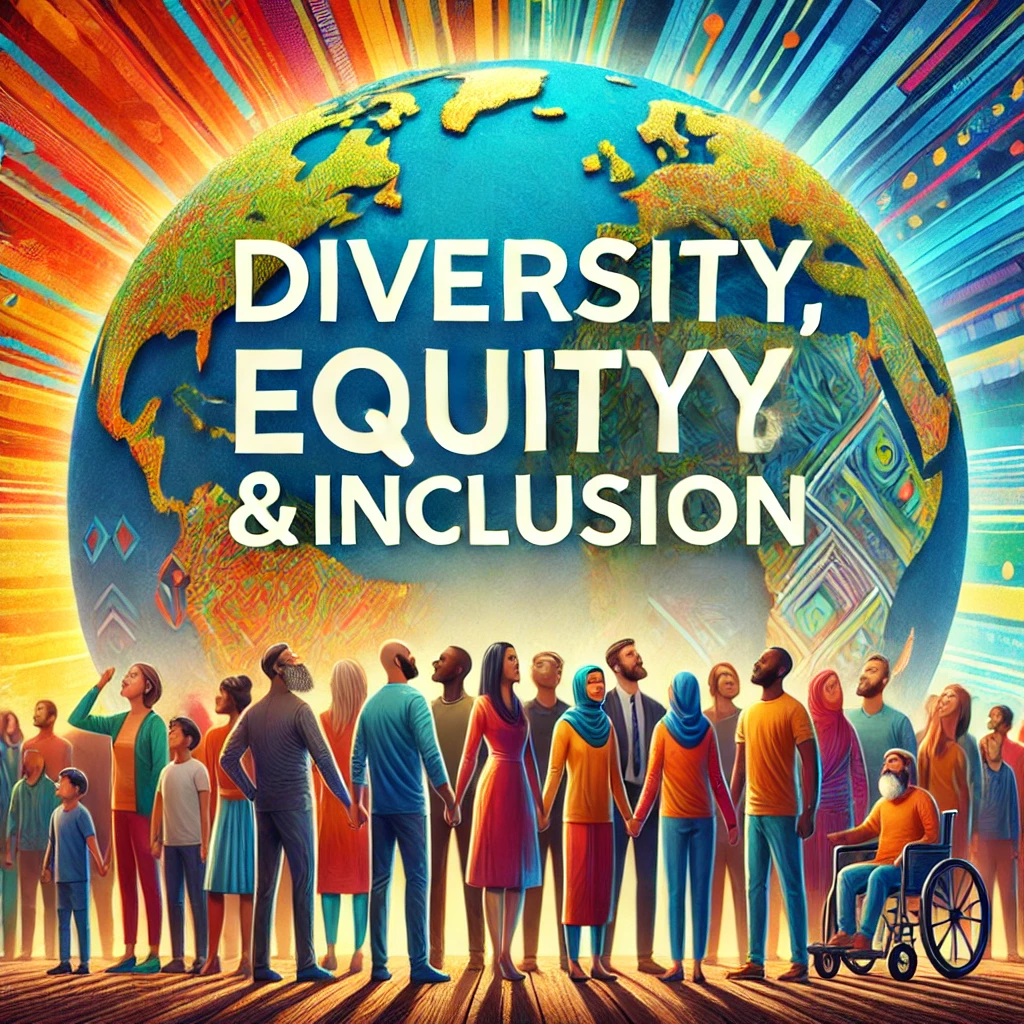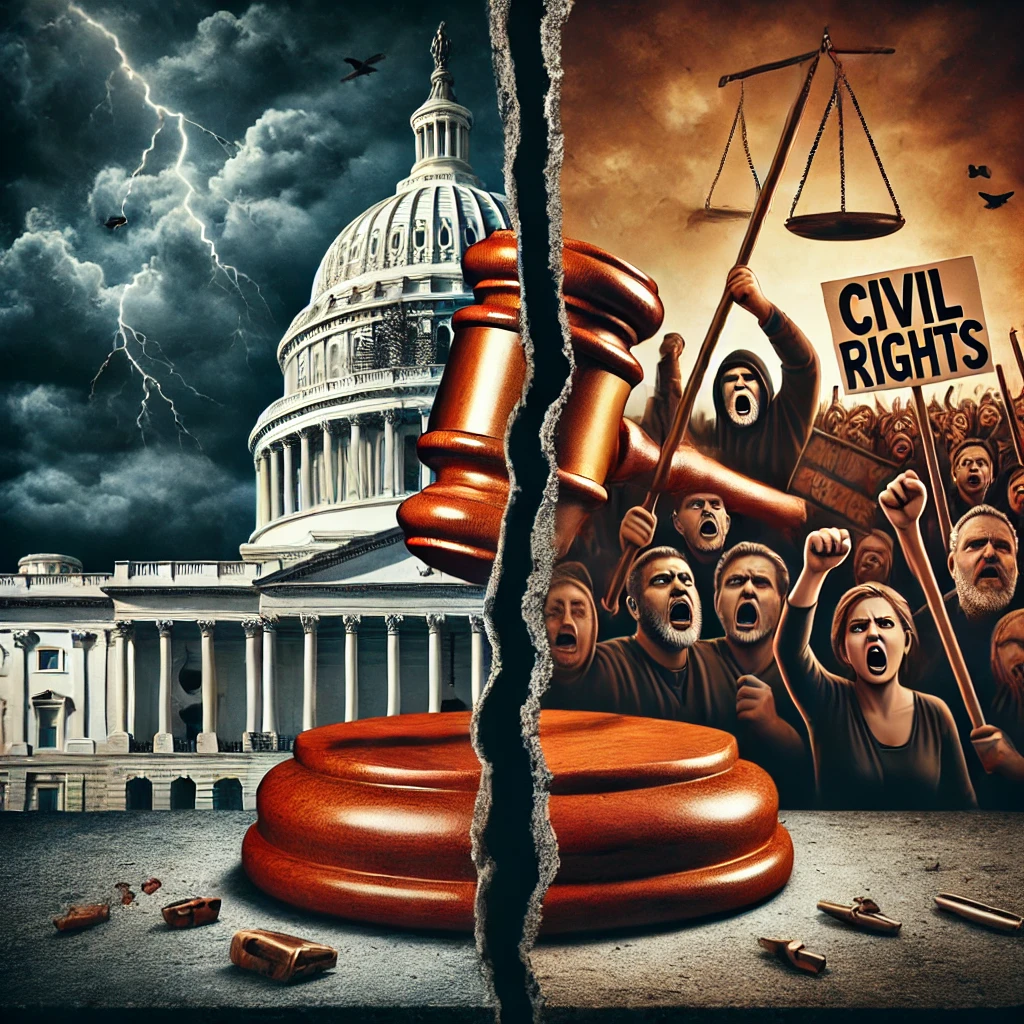House lawmakers have removed civil rights protections from a landmark privacy bill in a significant and controversial move, igniting outrage from civil rights groups and some Democratic representatives (Lima-Strong, 2024). The American Privacy Rights Act, initially poised to set a new standard in federal data privacy law, had included provisions to prevent data collection discrimination and require companies to assess potential harms caused by their algorithms. However, these critical sections were stripped from the bill’s latest version, a decision met with fierce backlash from various advocacy organizations (Lima-Strong, 2024).1
Maya Wiley, president and CEO of the Leadership Conference on Civil and Human Rights, expressed her outrage, stating that removing civil rights protections from the privacy bill undermines the foundation of civil rights in the digital age.

“We are outraged over the decision to unilaterally strip any semblance of civil rights protections in the latest [version] of the American Privacy Rights Act,”
-Maya Wiley
Similarly, David Stacy from the Human Rights Campaign described the exclusion as “dangerous” and potentially devastating for communities nationwide. Removing these provisions threatens to derail the bipartisan support that the bill has garnered, casting doubt on its future passage (Lima-Strong, 2024).
Keep the following in mind on why this story is important:
Erosion of Civil Rights Protections
The removal of civil rights protections in the privacy bill can lead to increased data collection and usage discrimination.
- Example: Without protections, companies could target ads or deny services based on race or gender, perpetuating inequality.
Impact on Vulnerable Communities: The lack of protections disproportionately affects minority and marginalized groups who rely on these safeguards.
- Example: Minority communities may face increased surveillance and data misuse without legal recourse.
Setback for Privacy Rights: The decision undermines efforts to establish comprehensive federal data privacy laws that protect all citizens.
- Example: Individuals could collect and use their data without proper consent or safeguards.
Hypothetical Example Scenario: The Impact of Gutting Civil Rights Protections in Privacy Bill

Title: A Tale of Unchecked Data Discrimination
Setting:
In a bustling city shortly, a young professional named Maria is excited to start her new job at a major tech company. She recently moved to the town and is eager to start fresh.
Characters:
- Maria: A Latina woman in her late 20s, tech-savvy and optimistic about her career prospects.
- Tech Company: A leading firm in data analytics and digital services known for its cutting-edge technology.
Scenario:
Like many others, Maria relies heavily on digital services for daily activities—shopping, social networking, and even finding a new apartment. She notices increased personalized ads and recommendations that align perfectly with her interests. Initially, she finds this convenient and impressive.
Rising Action:
One day, Maria applies for a mortgage to buy a new home. Despite her excellent credit score and stable income, her application is denied. Confused and frustrated, she decides to investigate. She discovered that the company providing her digital services had collected extensive data on her activities. This data, devoid of civil rights protections, has been used in a biased algorithm that discriminates against her based on her ethnicity.
Climax:
Maria’s story gains traction on social media and receives widespread support. Advocacy groups highlight her case as an example of why civil rights protections in data privacy laws are crucial. They argue that without these protections, algorithms can perpetuate systemic discrimination.
Falling Action:
In response to the public outcry, several advocacy groups filed a lawsuit against the tech company and called for legislative changes. Lawmakers who previously removed the civil rights protections from the privacy bill face intense scrutiny and pressure to reinstate these provisions.
Resolution:
After months of legal battles and advocacy efforts, the court ruled in favor of Maria and the advocacy groups. The decision mandates that the tech company revise its data practices and implement strict anti-discrimination measures. Lawmakers reintroduce the civil rights protections in the privacy bill, ensuring that future data collection and usage respect individuals’ rights and prevent discriminatory practices.
Diversity, Equity & Inclusion

This development is particularly alarming, given the ongoing struggles to ensure equality and inclusion in various sectors. A parallel issue has emerged with Tractor Supply Company, which recently announced plans to cut diversity-focused positions and retract its carbon-emissions goals in response to pressure from conservative groups (Melnick, 2024). This decision was met with significant backlash from other customers and advocacy groups, highlighting the tension between differing political beliefs and the role of corporations in promoting social values.
Tractor Supply’s move to roll back its diversity, equity, and inclusion (DEI) programs and its decision to cease supporting LGBTQ+ initiatives and Pride festivals has sparked a public outcry (Melnick, 2024). The company, recognized for its inclusive policies, now faces criticism from organizations such as the National Black Farmers Association and LGBTQ advocacy groups. These groups argue that the company’s actions send a regressive message and undermine efforts to promote equality and support marginalized communities (Melnick, 2024).2
Positive Action
The broader fight for equality remains a critical issue, with significant setbacks occurring in legislative and corporate arenas. To combat these challenges, individuals can take several action steps:
- Stay Informed: Keep abreast of legislative changes and corporate actions that impact civil rights and equality.
- Advocate: Support advocacy groups working to protect and advance civil rights. Engage in public discourse to raise awareness about these issues.
- Boycott: Consider boycotting companies that roll back DEI initiatives and support those prioritizing equality and inclusion.
- Vote: Participate in local and national elections to support candidates prioritizing civil rights and privacy protections.
The recent actions by the House and Tractor Supply highlight the ongoing struggle for equality and the need for continuous vigilance and advocacy. As these events unfold, it is crucial to remain engaged and proactive in promoting and protecting civil rights in all spheres of society.
The recent legislative actions in the U.S. House and corporate policy shifts highlight significant tensions around civil rights protections. The House’s decision to remove civil rights provisions from the American Privacy Rights Act has sparked widespread outrage from civil rights groups, arguing that this move undermines efforts to prevent discrimination in data collection and usage (Lima-Strong, 2024). This parallels Tractor Supply’s rollback of diversity, equity, and inclusion (DEI) roles under conservative pressure, which has led to a backlash from advocacy groups (Melnick, 2024).
Both instances reflect a broader conservative influence on civil rights and DEI initiatives, potentially eroding the protections established under landmark laws like the Civil Rights Act of 1964. The conservative supermajority on the Supreme Court, bolstered by Trump’s appointments, could further entrench these shifts by interpreting civil rights protections more narrowly (Farivar, 2020).3 These developments underscore the importance of sustained advocacy to preserve and enhance civil rights protections in the face of mounting challenges.
With the potential for World War III, it will be interesting to see what happens before the elections, as threats are being thrown around on every side. The Middle East is at war, which we will cover in a future post, along with the gender war.
References
- Lima-Strong, C. (2024, June 27). House guts civil rights protections in privacy bill, sparking outrage. The Washington Post. https://www.washingtonpost.com/tech-brief/2024/06/27/house-guts-civil-rights-protections-in-privacy-bill ↩︎
- Melnick, K. (2024, June 30). A farm-supply chain vowed to cut DEI roles amid pressure. Outcry followed. The Washington Post. https://www.washingtonpost.com/business/2024/06/30/farm-supply-chain-cuts-dei-roles-outcry ↩︎
- Farivar, M. (2020, December 24). Trump’s Lasting Legacy: Conservative Supermajority on Supreme Court. Voice of America. Retrieved from https://www.voanews.com ↩︎



Leave a Reply